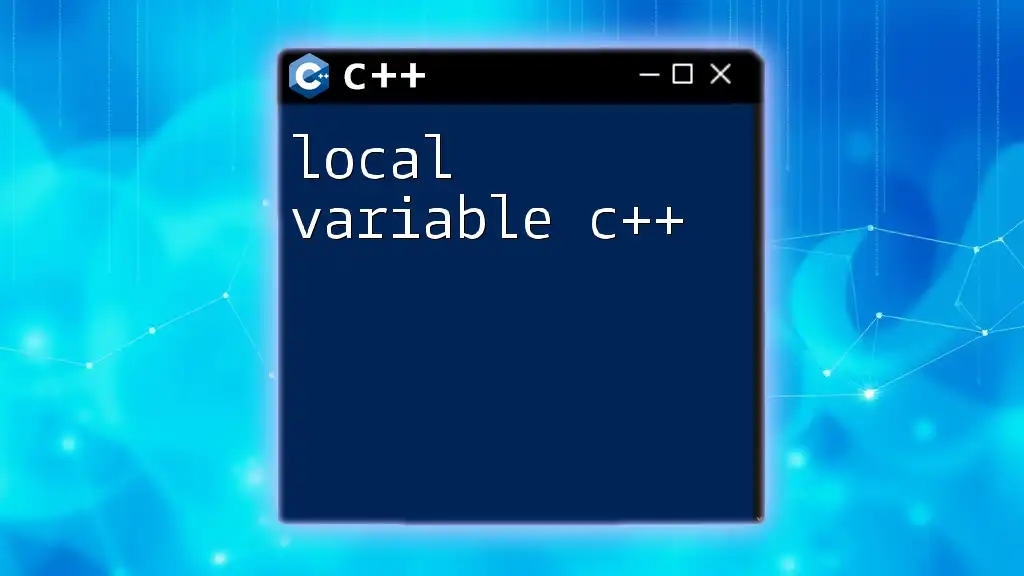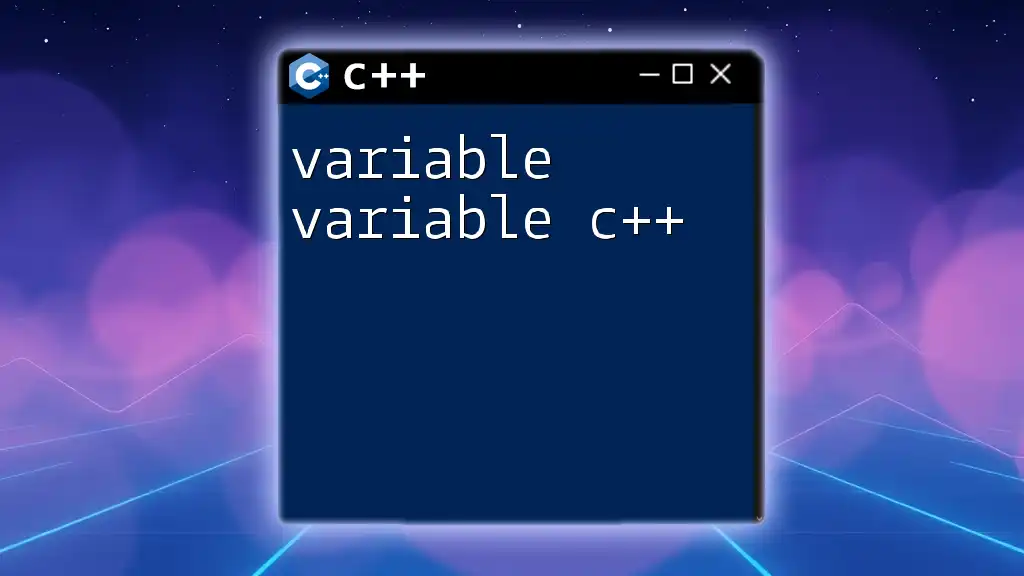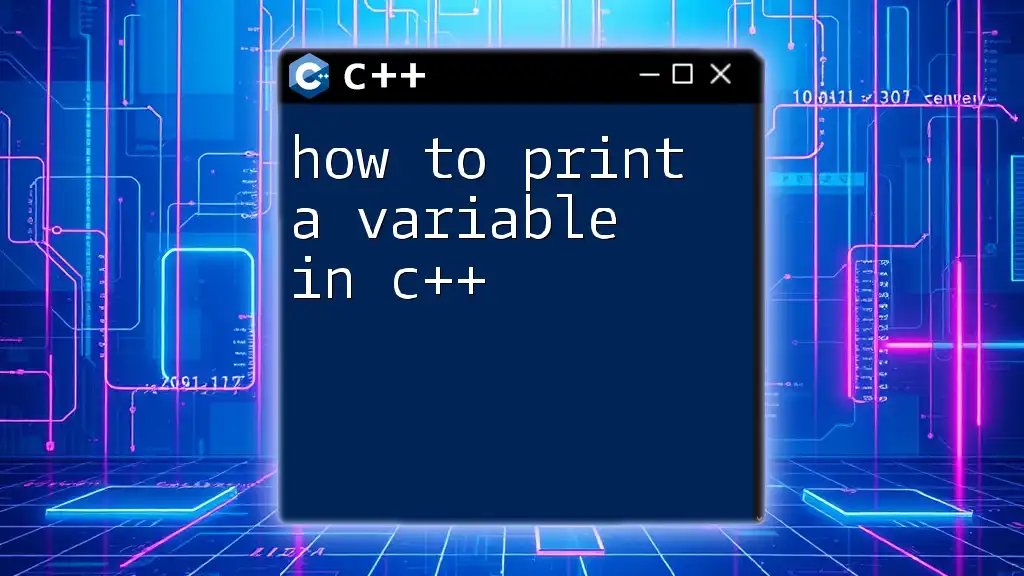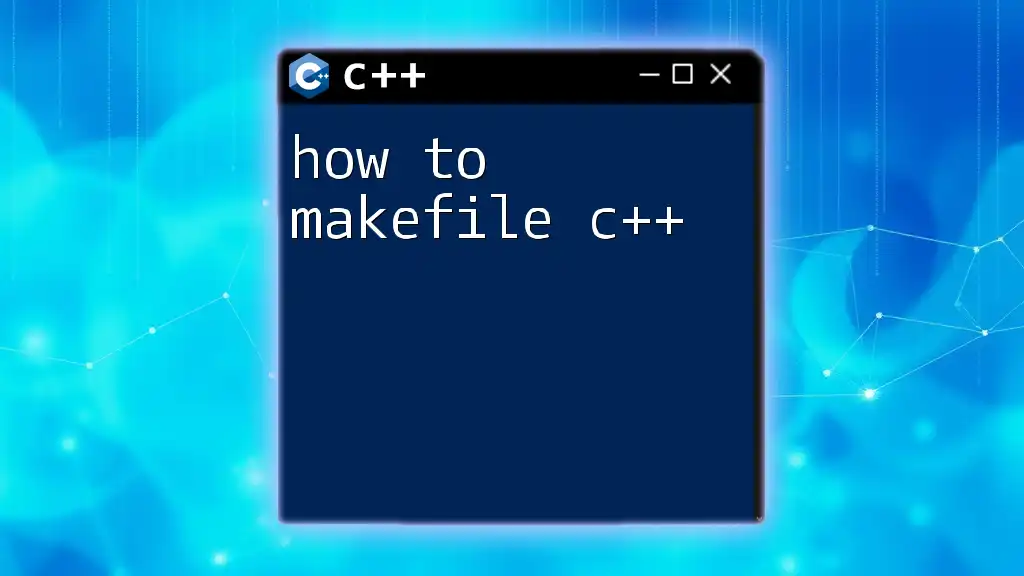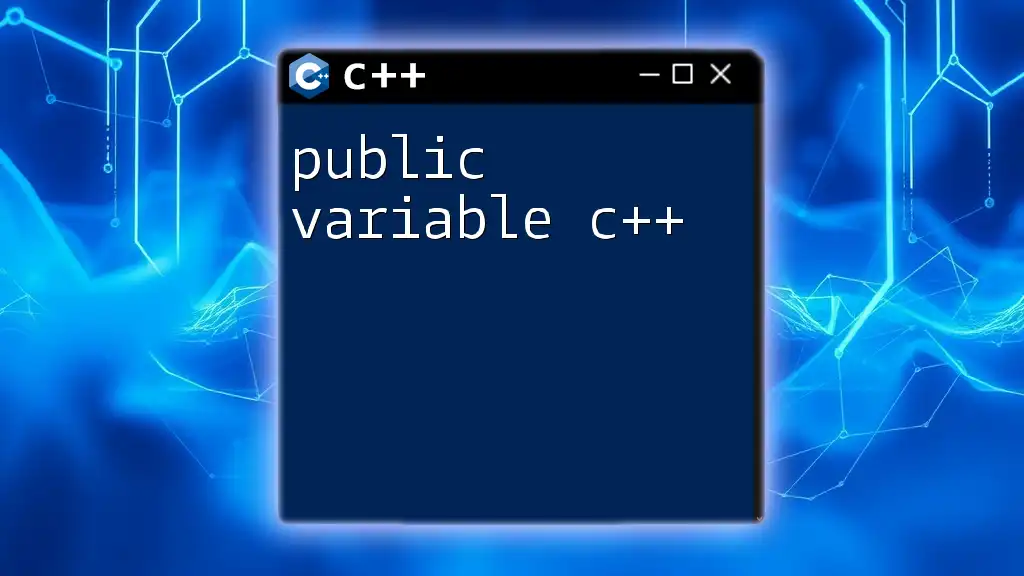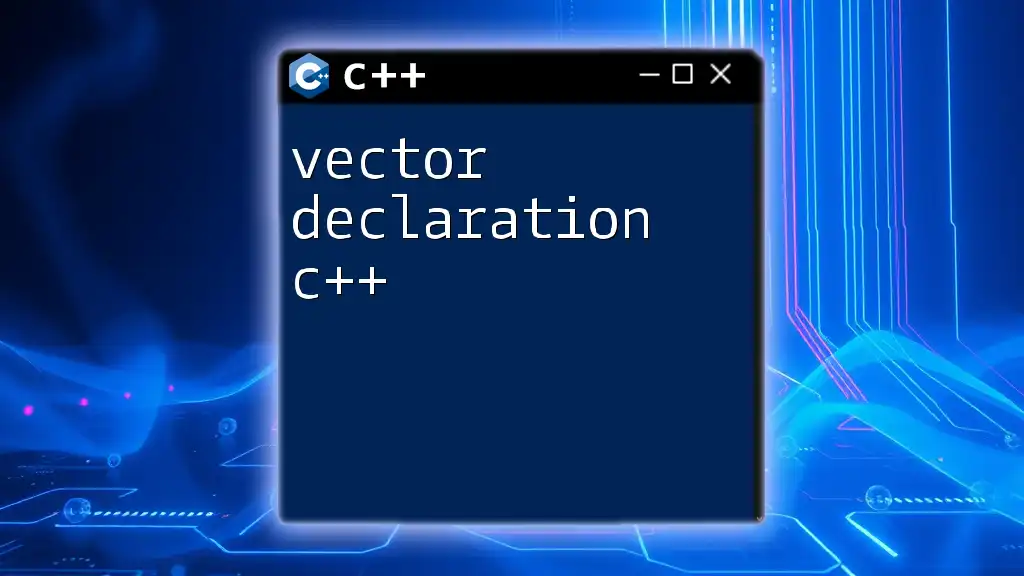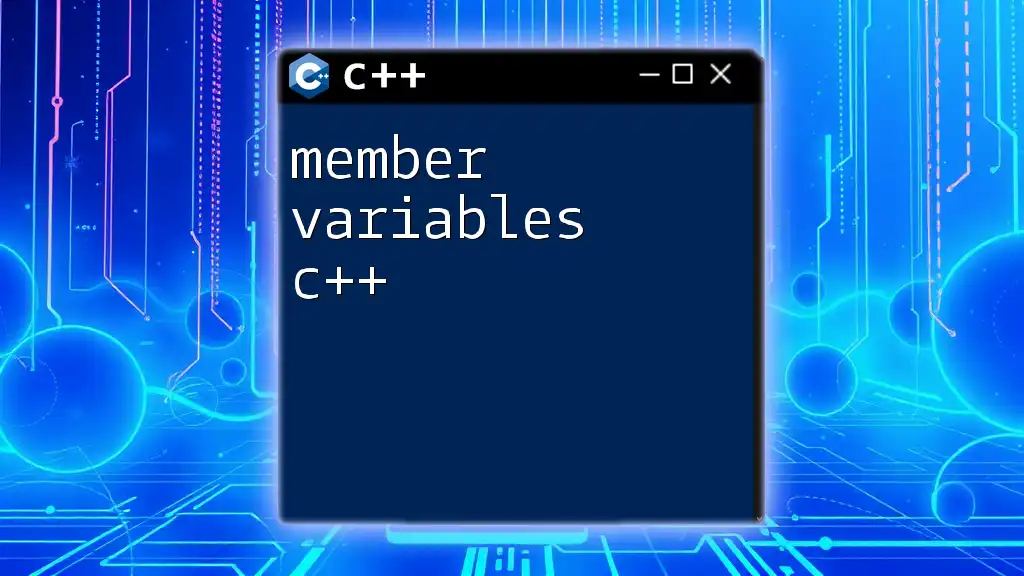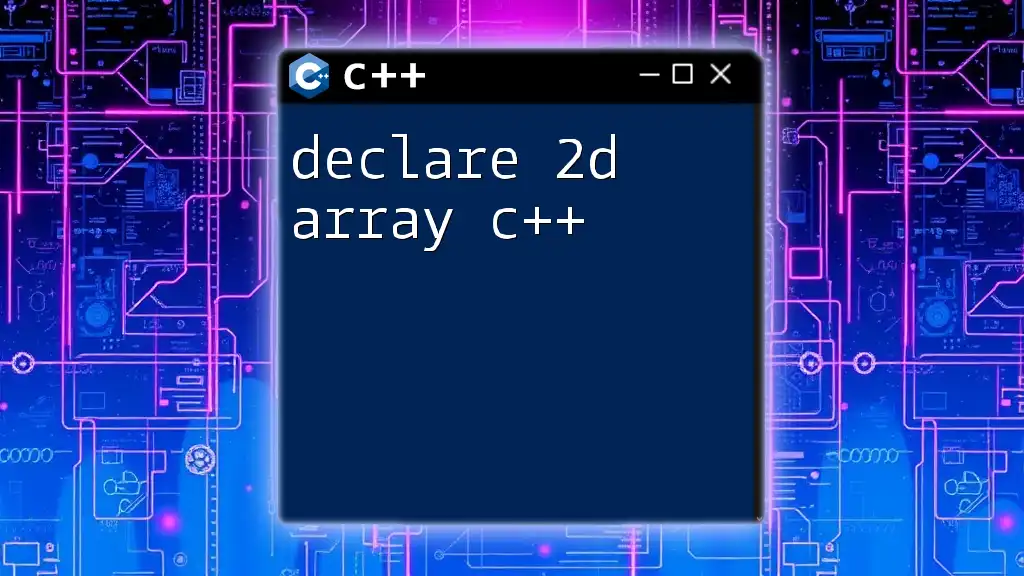In C++, a variable is declared by specifying the data type followed by the variable name, and optionally initializing it with a value.
Here's an example:
int myVariable = 10;
Understanding Variables in C++
Definition of a Variable
A variable in C++ is a storage location identified by a name, used to hold a value that can be changed during the program's execution. Think of a variable as a labeled box, where you can store information. This information might change as your program runs, which is why variables are crucial for making your programs dynamic and responsive to input.
Types of Variables in C++
C++ supports a variety of variable types that serve different purposes:
- Primitive Types: These are the fundamental data types provided by C++. They include:
- `int`: Used for integer values, such as 5 or -100.
- `float`: Represents single-precision floating-point numbers, suitable for decimal values like 3.14.
- `double`: Offers double-precision floating-point numbers for more precise calculations.
- `char`: Represents a single character, such as 'a' or 'Z'.
- `bool`: A boolean type representing true or false.
- User-defined Types: You can create more complex data structures using these types:
- struct: Used to group different variables.
- union: Allows for multiple variables but uses the same memory location.
- enum: Defines named integer constants.
- class: A blueprint for creating objects, encapsulating data and functions.

How to Declare a Variable in C++
Syntax of Variable Declaration
The general syntax for declaring a variable in C++ is straightforward:
type variableName;
Here, `type` is the data type of the variable, and `variableName` is the identifier you'll use to reference this variable later. For example:
int age;
This line declares an integer variable named `age`.
Step-by-Step Guide to Declaring a Variable
Choosing the Right Type
Choosing the appropriate data type is crucial for efficient memory use and program logic. For instance, if you need to count items, you should use an `int`, while a `float` is needed for measurements requiring decimals. This helps ensure your program runs efficiently and correctly.
Example:
int itemCount; // Ideal for counting items
float itemPrice; // Suitable for prices that include cents
Naming Variables
Naming your variables correctly is essential for code readability. Here are some important rules to follow:
- Variable names must start with a letter or an underscore.
- They can only contain letters, digits, and underscores.
- Remember that variable names are case-sensitive.
Avoid invalid names, such as starting with a digit. For example:
int valid_variable;
// int 1stVariable; // This is invalid
Initializing Variables
Initialization assigns a value to a variable at declaration time, which is crucial for preventing errors associated with uninitialized variables.
You can both declare and initialize a variable like this:
int age = 25;
This line creates an integer variable named `age` and initializes it to 25.
Default Initialization
When you declare a variable without initializing it, its value is technically undetermined—also known as a garbage value. Knowing the default values based on their type is essential to avoid unexpected behavior in your program.
For example:
int uninitializedInt; // Contains a garbage value
C++ does not automatically initialize variables. This is particularly important in larger programs where such oversight could lead to bugs.
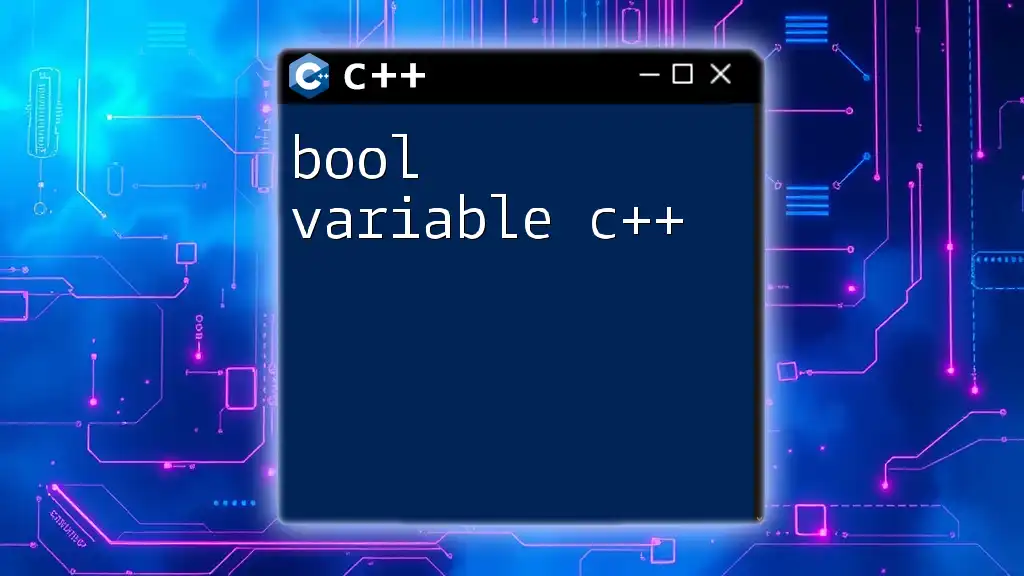
Best Practices for Variable Declaration
Declaring Multiple Variables
You can declare multiple variables of the same type in a single line, but it's essential to maintain clarity. For instance:
int x = 5, y = 10, z = 15;
While this is concise, consider whether it impacts readability. When working with many variables, declaring them on separate lines may be clearer.
Keeping Variable Names Descriptive
Choose variable names that convey meaning, as this enhances code readability and maintainability. For example, instead of naming a variable `x`, use more descriptive names like `temperatureInCelsius` or `totalPrice`. This practice becomes invaluable in larger projects where understanding the code quickly is crucial.
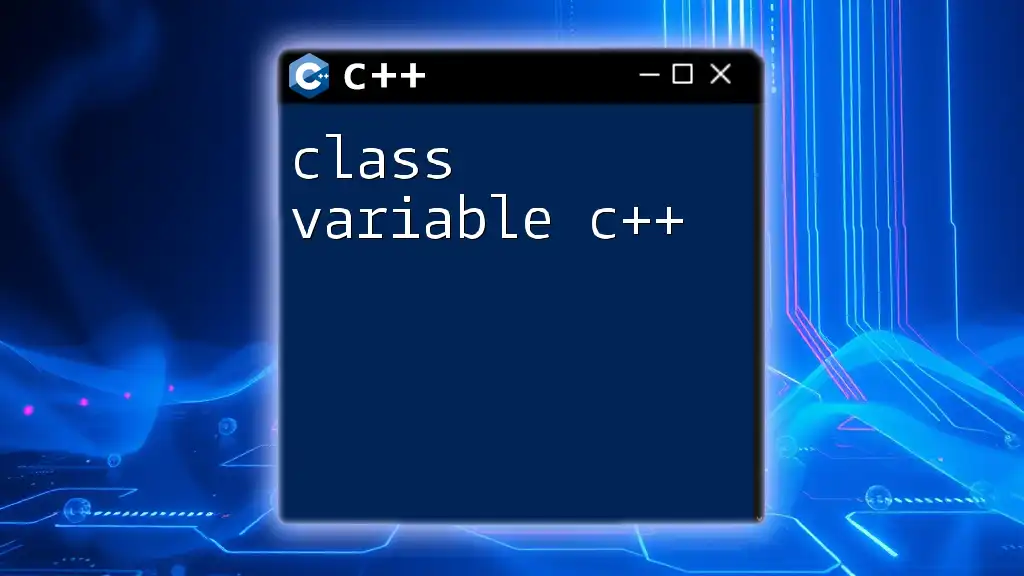
Common Mistakes When Declaring Variables
Forgetting to Initialize Variables
One common mistake programmers make is forgetting to initialize their variables. This can lead to unpredictable results, as the variable will contain whatever data was previously in that memory location, often leading to runtime errors. To illustrate:
int count; // count is uninitialized and could lead to unpredictable behavior
Misusing Variable Scope
Variable scope defines where variables can be accessed in your code. A common pitfall is misunderstanding the difference between local and global variables.
- Local Variables: Declared within a function or a block, these variables are only accessible within the containing block.
- Global Variables: Declared outside any function, they can be accessed from anywhere in the code.
Example demonstrating scope:
void myFunction() {
int localVar = 10; // Local variable
}
int globalVar = 20; // Global variable
// localVar cannot be accessed here
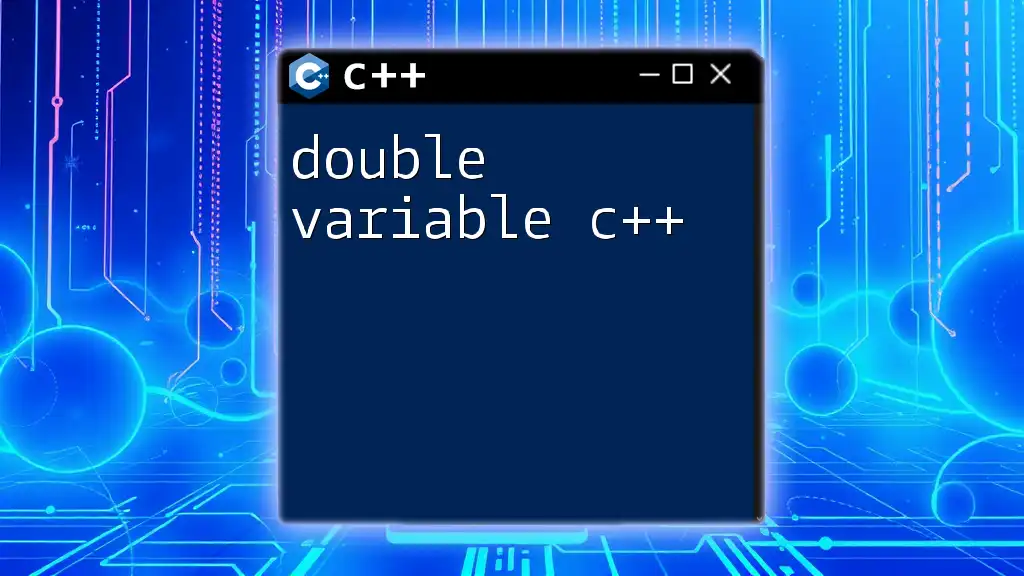
Conclusion
In this guide, we've explored how to declare a variable in C++, detailing the syntax, types, naming conventions, initialization, and common mistakes. Understanding these concepts will enhance your programming skills and help you create reliable and efficient code. Don't hesitate to practice the declaration of variables in your projects, and consult further materials to deepen your knowledge. Build a solid foundation, as mastering these fundamental concepts is vital for your journey into the world of C++.







